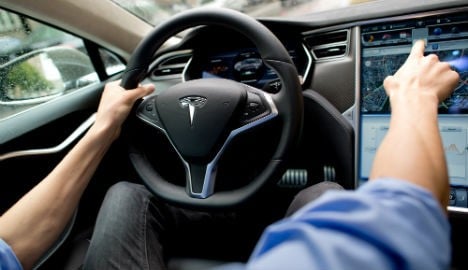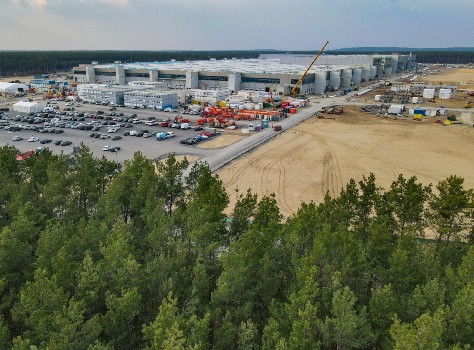TESLA
Berlin demands Tesla pull ‘misleading’ autopilot ads
Germany wants Tesla to stop advertising the "autopilot" function on its cars because it leads to false customer expectations, as the system comes under scrutiny following two fatal crashes.
Published: 16 October 2016 12:33 CEST

Consumer activists want the autopilot feature to be disabled if the driver's hands are not touching the wheel. Photo: Sven Hoppe/dpa
Transport regulator KBA has written to the company, telling it: “In order to prevent misunderstandings and false expectations from clients, we are asking that the misleading term 'Autopilot' no longer be used in advertisements for the system.”
The KBA letter cited in Bild am Sonntag was confirmed to AFP by the transport ministry. Germany has been conducting an investigation into the autopilot system in vehicles made by electric carmaker Tesla, which has been available with its Model S series since October 2015.
Questions have been raised over the system after two fatal crashes, one in northern China in January and another in the US state of Florida in May.
In September, a Tesla electric car crashed into a tourist bus on a motorway in northern Germany, lightly injuring the driver who said he had activated the vehicle's autopilot system.
At the time, Tesla said the driver had confirmed the autopilot was “functioning properly and… was unrelated to the accident.”
Last week, a Tesla spokesman told AFP: “We have always been clear with our customers that Autopilot is a driver's assistance system that requires the driver to pay attention at all times.”
The system allows the vehicle to automatically change lanes, manage speed and brake to avoid a collision. The system may be overridden by the driver.
Consumer activists have called on the company, founded by PayPal billionaire Elon Musk, to disable the autopilot feature until it is updated to detect whether the driver's hands are on the steering wheel during operation
— as the company says should be the case.
Url copied to clipboard!


 Please whitelist us to continue reading.
Please whitelist us to continue reading.